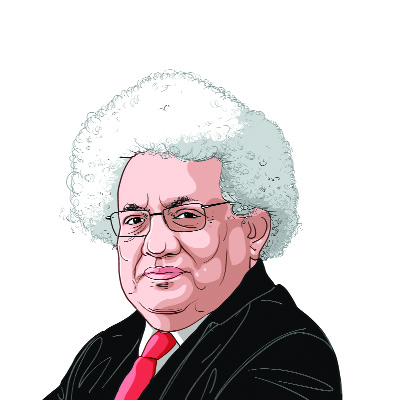Opinion Grey Wednesday
A week may be a long time in politics but last Wednesday was longer still. Indeed,it has not quite ended yet
A week may be a long time in politics but last Wednesday was longer still. Indeed,it has not quite ended yet. It may end only when the result of the next general election is known. It was a bright white Wednesday for UPA in the first half of the day with Congress winning decisively in Karnataka and it got better with the adjournment of Parliament sine die. Then in the second half of the day,it became a black Wednesday. The executive lost its last fig leaf of respectability.
India now has neither a legitimate executive nor a functioning legislature. The Congress has achieved the first entirely on its own when caught with its emperors clothes on by the Supreme Court. The BJP cooperated in stalling Parliament. The judiciary remains the only institution which can fulfill the hopes people had when the Constitution was adopted.
Not that the political party system cares. As ministers were heard saying to the media on Wednesday,the Congress had won in the peoples court. That is all that matters. The nations constitutionally sanctioned court can be ignored by those who think that the electorates quinquennial judgment gives them untrammelled powers. The Congress,after all,has form in this matter. Indira Gandhi,its principal patron saint,argued the doctrine of the mandate. An electoral victory gives the government unlimited powers to mangle the Constitution as it likes. She showed how it could be done. India has never overcome that shock. As far as the Congress is concerned,Emergency comes back each time it is in power.
Not that the Opposition is any better. They have not been in office at the Centre for more than one full term. But there is not a thin paper between the two as far as the morality of how to behave when in office is concerned. So we shall pass a very unpleasant 12 months until the next general election decides who will wield power; the hardened professional of violating the Constitution or the new kid on the block.
So who will win? This is a question which will be on everyones mind constantly for the next 12 months. The Karnataka results in this matter throw very little light. The BJP has now lost three state electionsHimachal Pradesh and Uttarakhand,both narrowly,and Karnataka decisively,barely escaping coming third. But the Congress gained from Yeddyurappas defection and then taking almost 10 per cent of the BJPs vote share. So it is a triumph of the first-past-the-post voting system rather than of the Congress or its policies.
That said,how do we assess the prospects for 2014 now? Try a counterfactual experiment. Suppose we take the BJPs triple defeat as a serious indicator of its weakness,then we have a dramatic possibility that neither of the two major parties will cross the 150 mark,though the BJP will still be the single largest party. Suppose further that the numbers are 110-120 for the Congress and 130-140 for the BJP. The JD(S)s performance is the most interesting event of the Karnataka elections. Now there are very few states left where the two major parties are sole or even the leading players. The federal logic is getting stronger. The idea of India is no longer the Nehruvian one. India is revealing itself as a multi-national contract kept together thanks to electoral democracy.
In this counterfactual,it is the state-based parties which are decisive. In a way,it is the fragmentation of the Janata Party in 1977-1980 which was the real tragedy of democratic politics. It restored the Congress and its personalised power politics for ten more years. When the Congress lost its hegemony in 1989,there was no single alternative. The breakaway fragment which became the BJP had the best chance of being that alternative. It may still be that,but perhaps not if it behaves like it has been doing since it was caught in the Narendra Modi problem. Twenty-five years on,we search again.
If my counterfactual is realised,we may end up with a coalition of third parties with outside support by a major national party. That option has failed before,but so what? As India changes so must her options.


